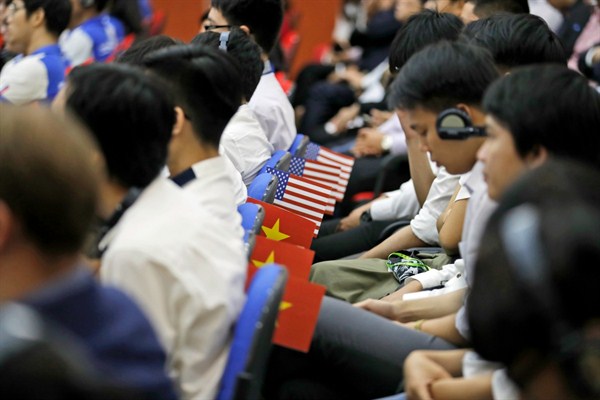Business leaders at the World Economic Forum in Davos last month warned that China has overtaken the United States in the development of artificial intelligence and other emerging technologies, such as fifth-generation wireless or 5G. “There’s almost an endless stream of people who are showing up and developing new companies,” Blackstone’s CEO Stephen Schwarzman told one panel of his frequent trips to China. “The venture business there in AI-oriented companies is really exploding with growth.”
The attention on China’s rapidly evolving tech sector has overshadowed another area of competition between Beijing and Washington, which may be moving more slowly but is just as consequential: the battle for young minds. Nowhere is this competition to educate and attract younger generations more pronounced than in Southeast Asia, with its youthful demographics, fast-growing economies and array of geopolitical flashpoints.
Countries such as Vietnam, Indonesia, Thailand and the Philippines, where the median age hovers at around 30, are looking to harness their young and well-educated workforces for economic growth and become innovation hubs in their own right. In the aftermath of their country’s tightly contested 2014 presidential election, young Indonesian entrepreneurs developed a crowdsourcing platform to tally votes and safeguard against electoral fraud. For the past two years, talented Vietnamese university students have been vying for Samsung-sponsored science and technology scholarships.

